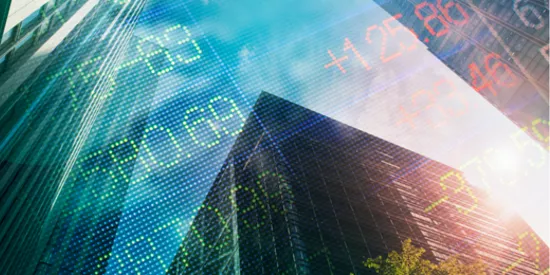
ESG in the U.S.: The World is Watching
Two decades after ESG (environmental, social and governance) emerged out of a United Nations report (“Who Cares Wins”, 2004) and went mainstream, the concept is under attack as never before -- both as an investment philosophy and a business practice.
The highest-profile headlines have been made by several US states, where Republican administrations have cancelled pension mandates with asset managers due to their pro-ESG strategies. However, on top of this “opportunistic backlash”, says Marie Clara Buellingen, Head of Sustainable Finance at Societe Generale in New York, there is also a “dislocation backlash”. The energy transition is having a real impact on local and regional economies as government support, private capital and jobs shift from industries based on thermal power to renewables and ‘green’ technology.
On top of an ‘opportunistic backlash’, there is also a ‘dislocation backlash’ and an ‘immateriality backlash
Finally, there is what might be called an “immateriality backlash”. There is no doubt that over the last few years, the hype around ESG and sustainability (terms which are often conflated) has blurred the lines between material ESG issues and other considerations more akin to traditional corporate social responsibility. When everything is labelled ‘ESG’, its impact becomes impossible to measure – both in terms of financial as well as sustainability impact.
The wrong kinds of green
The increased scrutiny from regulators, asset owners and other stakeholders also lays bare to a wider audience the variations and depth of current ESG integration. This is something felt acutely by investors facing increasing regulation such as the rise of global taxonomies, as well as, at times, conflicting mandatory and voluntary reporting regimes. This forces investors to evolve or align their investment approach and the corresponding marketing to get in front of “greenwashing” concerns.
This, in turn, has fed back to corporates, who are assessing their ESG strategies for reputational and regulatory exposure, and for some who are less outspoken, so-called “greenhushing.” While in the early years of ESG going mainstream, increased disclosure was a core focus and key steppingstone, at this juncture corporates are spending more time on internal alignment before making public commitments. At a macro level, this appears a necessary correction in response to the hype since 2020 as well as sign of evolving maturity.
Most recognise, however, that ESG, love it or hate it, is here to stay. “Think about climate change, declining biodiversity, rising social unrest. These are tectonic shifts in our world and represent potential financial risks for companies. That’s why ESG is top of the agenda for every board today,” says Helle Bank Jorgensen, CEO & Founder of Competent Boards, which educates and certifies board directors and senior executives on ESG and Climate issues.
Climate change, declining biodiversity, rising social unrest are tectonic shifts in our world and represent potential financial risks for companies.
Apolitical and analytical
So, how should businesses respond and move forward? The first step is to depoliticise the debate by focusing on “value” to multiple stakeholders, delivered ethically and with high degree of accuracy and strategic actionability. Reducing waste, using fewer resources, improving energy efficiency, pursuing good relations with employees and local communities. These are actions that make sense for society and the planet while enhancing margins and fulfilling fiduciary responsibilities. Consequently, there is common ground here for companies, investors and other stakeholders, whatever their political affiliation.
Allied to that, better financial impact analysis can help management draw a clearer distinction between ESG topics that are genuinely material and others that are not, notes Ms Buellingen. This is an evolving process that will need involvement across departments beyond the sustainability and finance teams.
Companies should, however, think of such planning also as an opportunity for innovation and differentiation rather than just a cost. This also applies when it comes to encouraging a more robust debate -- both internally and at the board, and externally with partners and stakeholders -- on the trade-offs inherent in ESG. If a business acts on one aspect of an environmental issue, say, moving entirely to renewable energy, how does this affect other factors, for example, the demand for rare earth metals mined in unsustainable conditions? ESG is not a substitute for policy, nor should it be. If used well, it is a tool to enhance corporate resilience, risk management and innovation, says Ms Buellingen.
Such intersectionality issues need to be thought through carefully. Companies do not want to be accused of inadvertently making things worse. This is where having the right skills and expertise all the way up to the board level is essential, points out Ms Bank-Jorgensen. Who does not want to know if their supply chain is robust? Or how much a rising carbon price will affect profits? And a well-handled approach to ESG topics can help attract (especially, younger) employees and lower the cost of capital.
An enabling environment
To put all this into practice, corporates (and their stakeholders) need a more robust ESG ecosystem within which to work: standardised taxonomies, harmonised disclosure regimes, and data that is given reliability through external assurance, akin to financial data today. That will then create a shared ‘language’ for ESG across departments, up to and including the board.
Meanwhile, as mentioned, companies need to invest proactively: giving responsibility for ESG topics to senior leaders and then providing resources and training. Subject matter experts need to advise directors, especially non-executives, so that boardroom debates are more than box-ticking exercises.
Ultimately, however, it comes back to what kind of company you want to be, argues Ms Bank-Jorgensen.Corporates cannot please everyone, nor should they necessarily. What they need to do is figure out their stand on an issue and any potential impact, both financial and otherwise. Whether dealing with ESG or anything else, this is just good business.
To get insights and concrete ideas for your sustainability journey, join the debate throughSociete Generale’s Positive Impact Week its flagship global client event on November 27 & 28.




